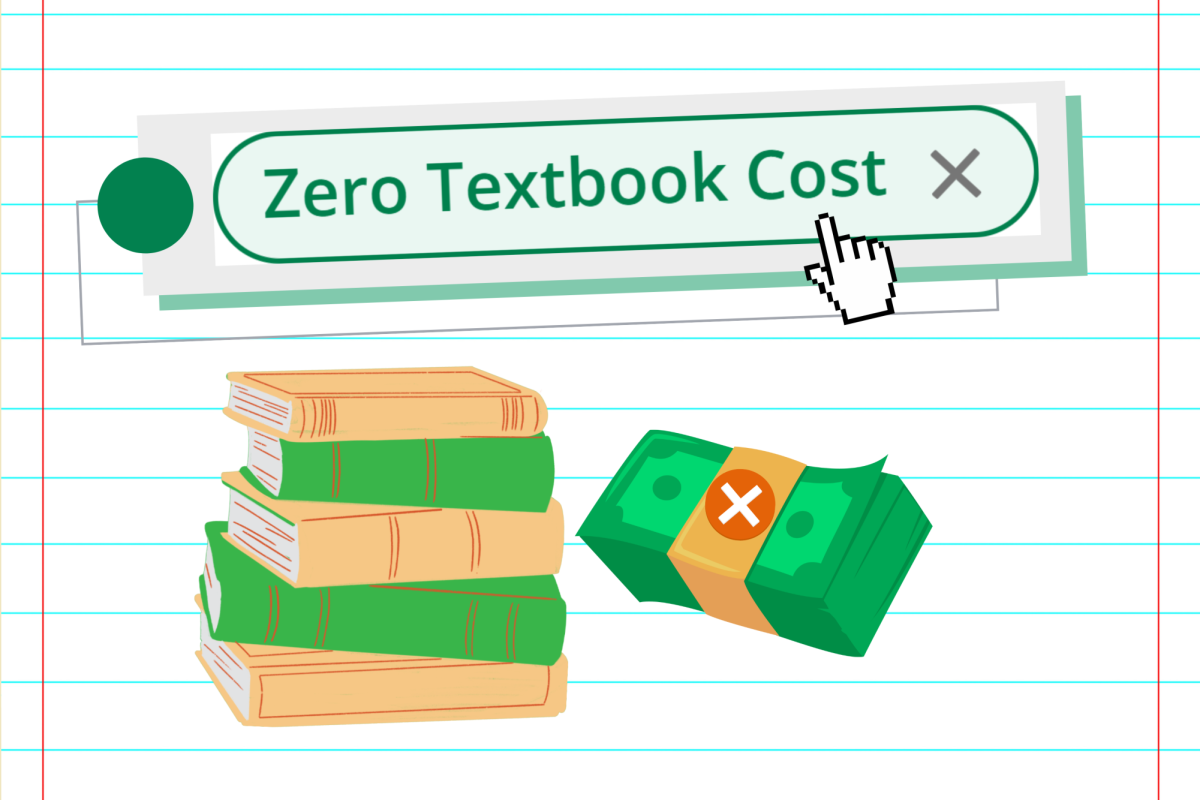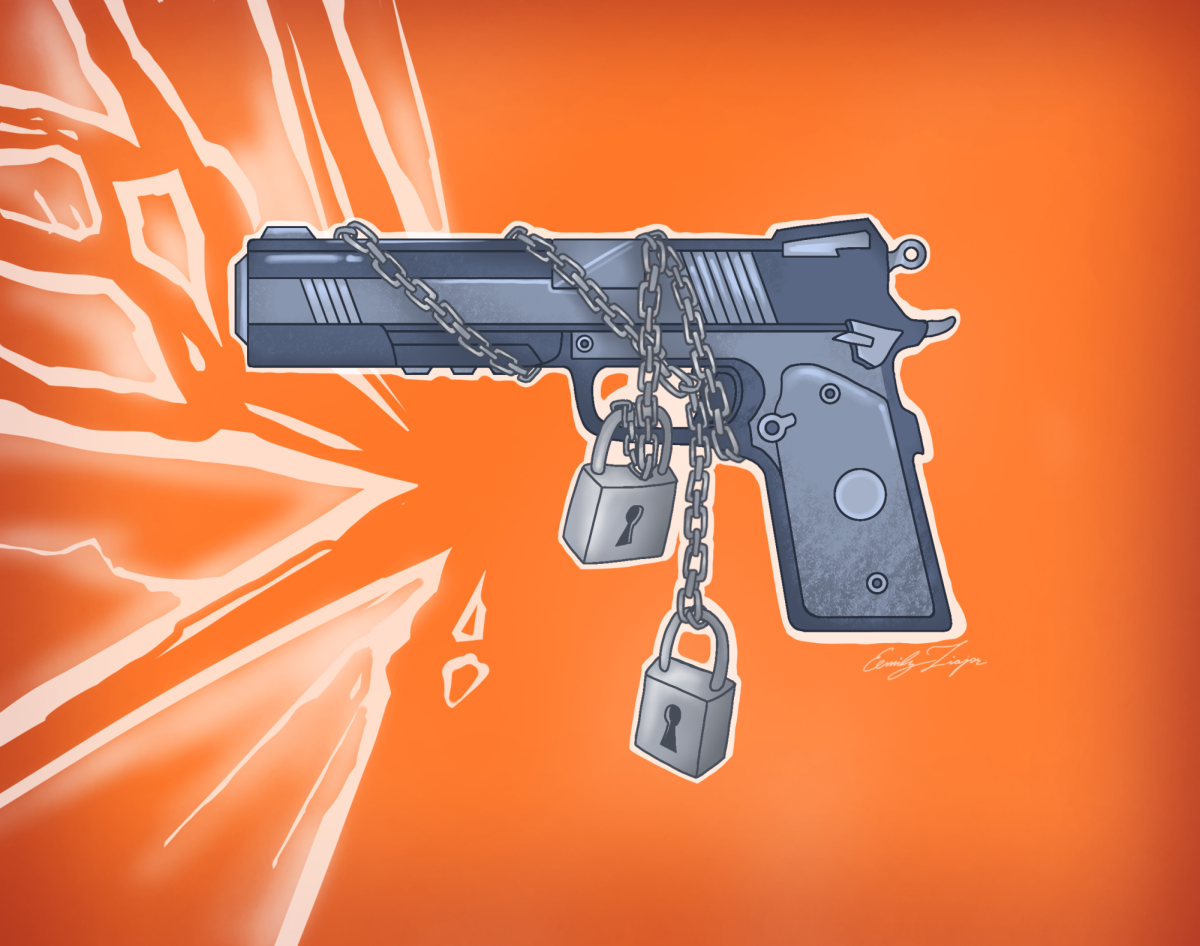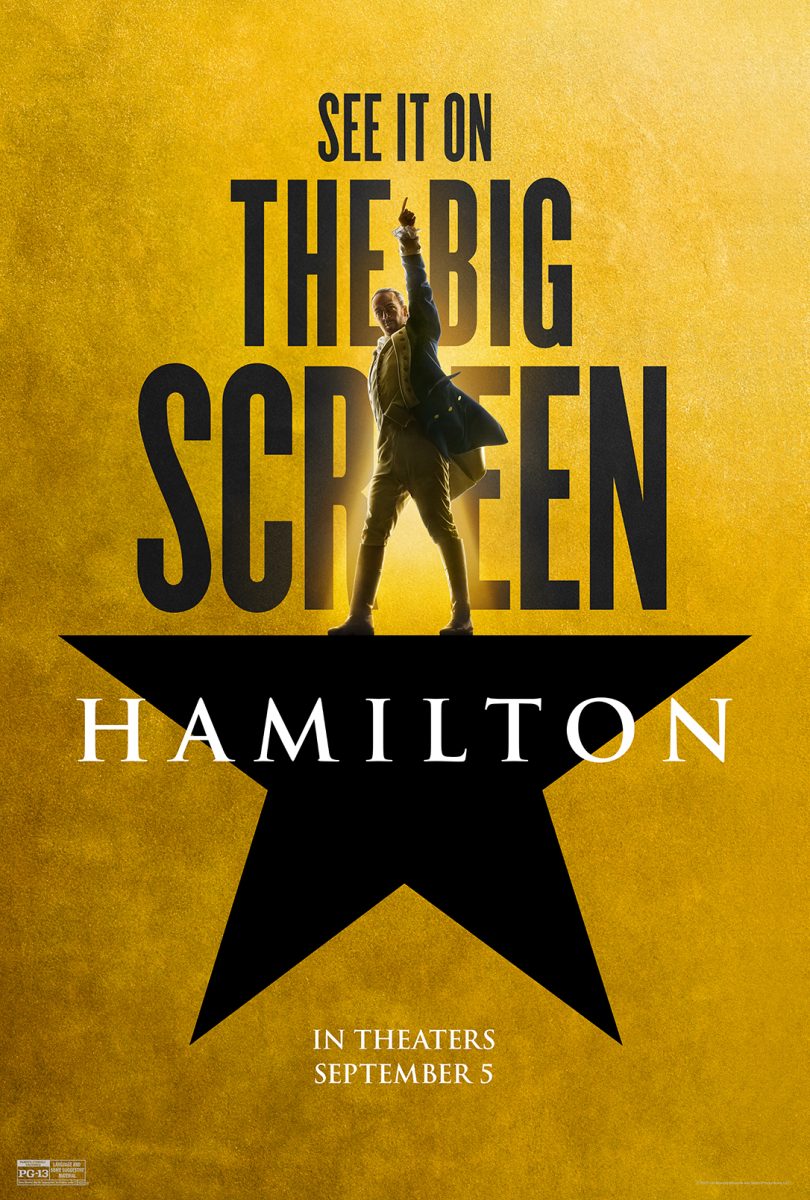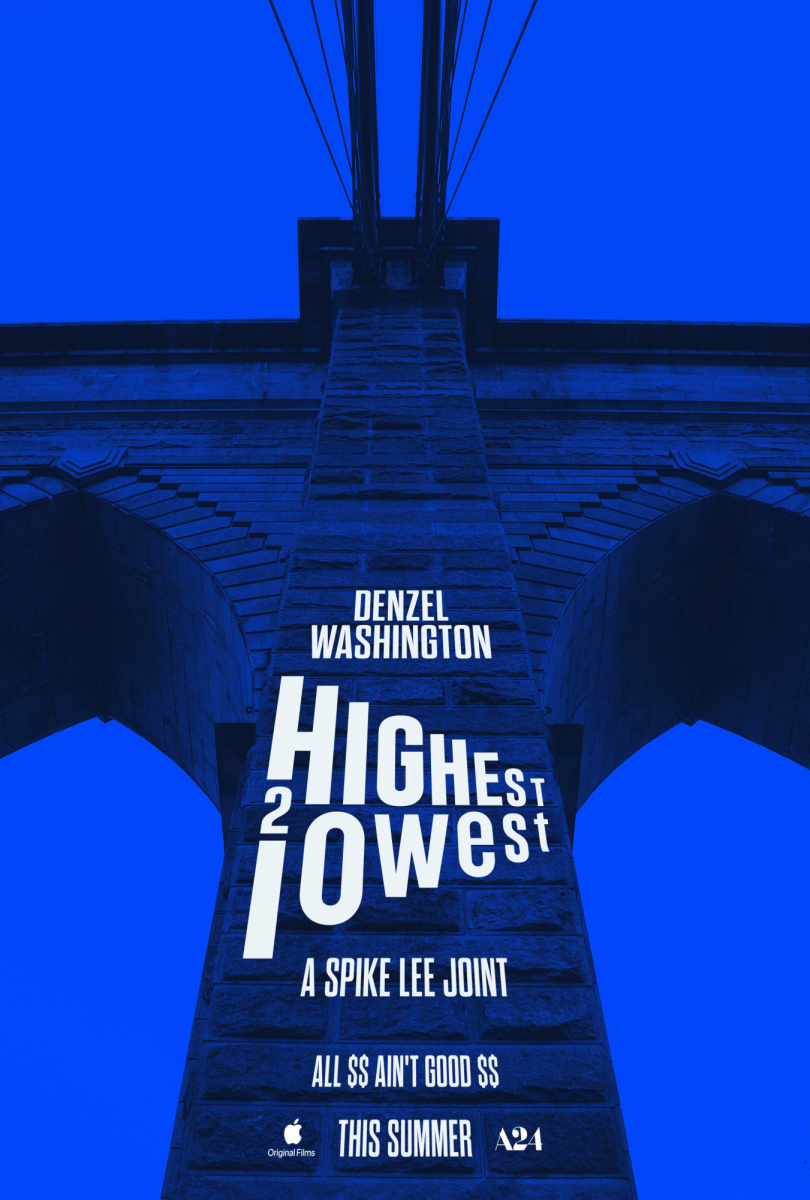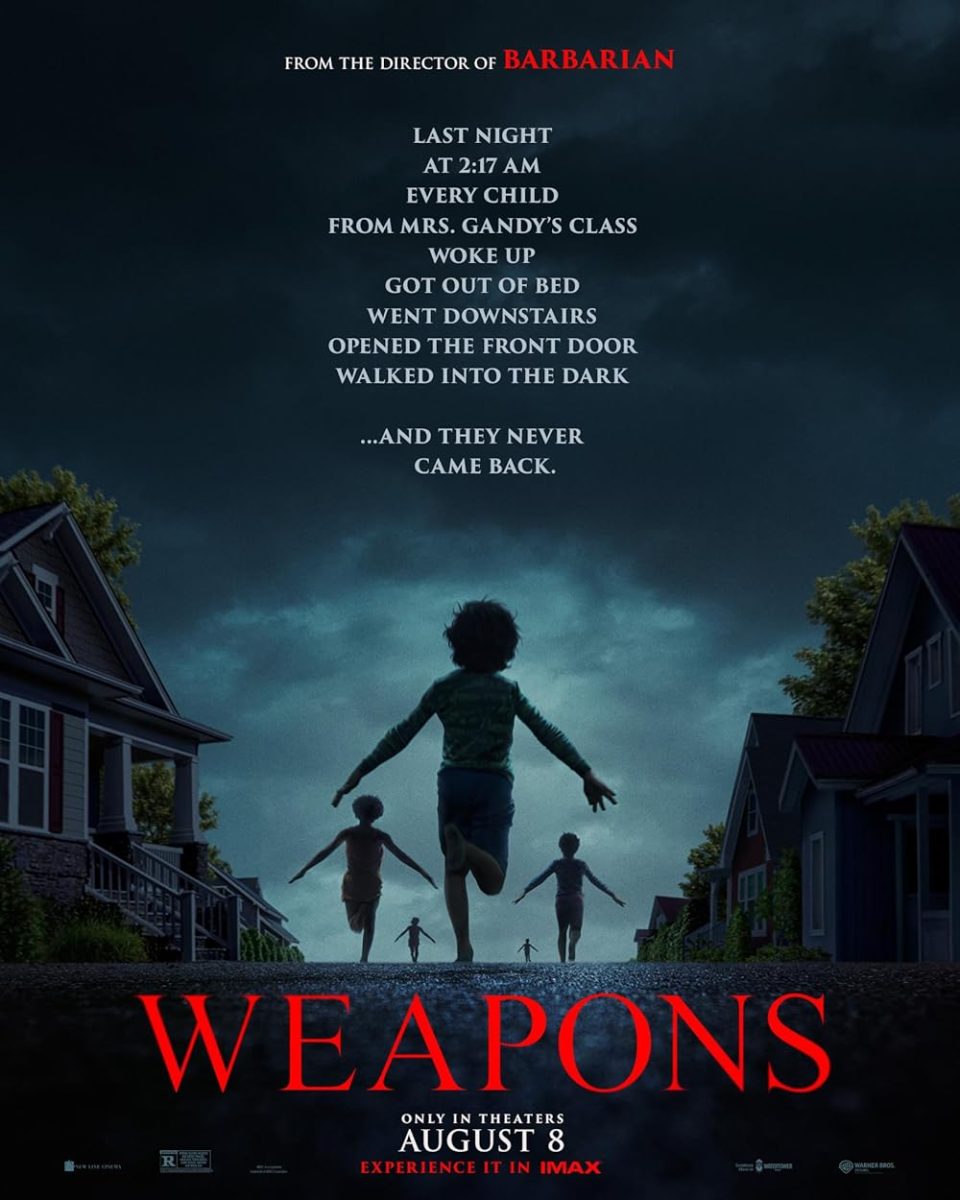The expectation of an $8 increase in tuition for the fall has many students worried. We know tuition increases are customary, and the college is offering scholarships, but it can still be a challenge with other steep cost of living prices. One beacon of light is the launching of Zero Textbook Cost classes for over 1,000 sections at COD this fall.
To find ZTC courses, students can go to the myAccess selfserv.cod.edu and checkmark Zero Textbook Cost under Course Type in the Filter menu on the left side. Students can also email the professor to verify.
ZTC courses will not require any purchase of textbooks, lab workbooks or similar materials that have to be bought from the COD Bookstore or third-party vendors. Instead, alternate resources like free textbook PDFs will be provided. I can attest that these are just as informative as paid textbooks and have many great features, which I hope encourages students to take the ZTC courses.
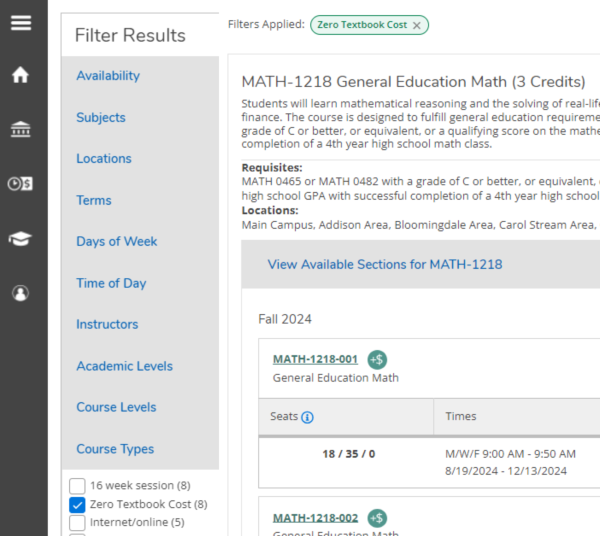
At COD, it will start this fall with mainly just general education courses, though the faculty hopes to expand it to entire Associate of Arts degree programs. It’s part of the larger Open Education Resources efforts that are successful at COD and around the nation. These are free academic resources that anyone can access, and it has helped thousands of students like me with their education.
Lauren Kosrow, the Digital Content and Open Access Librarian for the COD library, talked in an interview about the fall tuition increase and how OER usage in classes can take away the financial burden of expensive textbooks.
“The goal of the Open Education program at College of DuPage is to make college more equitable and accessible for students. When faculty adopt open educational resources (OER) in their classes, all students have access to their course materials on the first day of class for free,” she explained.
She described how since 2019, at least 22,000 students have used OER, and it has saved those students about $7 million, according to COD Newsroom’s article about the ZTC courses.
“We know that textbook costs can be a significant burden to students in their higher education journey, and this program is designed to increase the use of OER at COD in order to help eliminate financial barriers to student success,” Kosrow said. “This program continues to grow, and faculty are working hard to complete projects that will significantly increase student savings on textbooks in the future.”
The COD Newsroom article also mentioned how many professors took the initiative to pioneer Open Education Resources in their classrooms, such as four mathematics professors who created a textbook for gen ed math. The OER initiative and its hefty fund will support professors as they develop these materials, from textbooks to virtual slides to quizzes and tests.
It is good to know that the faculty of COD and other colleges are listening to student concerns with this initiative, as they had fielded a huge statewide survey that had 213 COD students’ responses.
Titled the “Illinois Course Material Survey: Student Perspective” and started by the University of Illinois system, it was described in a COD email as giving students, “a way for your voice to be heard concerning the cost of your textbooks and instructional materials, the impact textbook costs are having on your education, your preferences for course material formats and qualities, and your experience with affordable course materials… Your input will contribute to the body of knowledge on student textbook and instructional material costs and their impact on Illinois college students.”
I remember taking that survey in the fall of 2023, because the topic was important, and OER textbooks and tools have been one of the best resources I used in my classes at COD. In the survey, there were questions about how much my average textbook costs were and how it affected my learning experience. These costs heavily influence me. I often search the different sections of a class on the Follett bookstore website to see if they offer different-priced textbooks. I opt out of sections with more expensive textbook requirements.
In the Legal Studies program, I was fortunate to be able to afford many of the books as rentals or online. Even the more expensive ones like “ALWD Guide to Legal Citation,” are a vast wealth of knowledge and directly related to my career, so they were worth the cost. We are also fortunate to have WestLaw, an online legislation database, for free through the COD Library database. The tight-knit student community of the Legal program also shares and lends textbooks and professors have sponsored many scholarships that go a long way in supporting students with costs.
Solutions like these and the ZTC initiative are helpful. We’re also fortunate to have educators and academics throughout the state who supported the ZTC initiative and even authored a wealth of amazing textbooks. Many PhD and doctorate-holding professors contribute their years of research and knowledge to create textbooks for their classes. I think it’s still important that these textbook authors receive fair compensation.
That’s why the $6.2 million grant is so important for educators to provide free learning materials that are still of high quality and compliant with higher ed standards. The expectations for OER materials are outlined in COD’s OER steering committee report from 2022, on pages 15 to 17.
I’ve used OER or free texts for classes almost every semester. In the spring of 2022, I took a research-heavy political science class with a great textbook on a website accessible through our student accounts. In the fall of 2022, I had a constitutional law class where my professor was an attorney and authored the free-access textbook.
This past summer, my criminology professor Eric Ramirez-Thompson offered an online textbook, “Criminology: Foundations and Modern Applications” through cod.pressbooks.pub, and it was one of the most dynamic virtual resources I’ve ever used at COD. It had audio reading of the textbook, built-in videos and PowerPoint slides, hyperlinks to exclusive academic journals, and a bibliography and other supplemental resources for our own research.
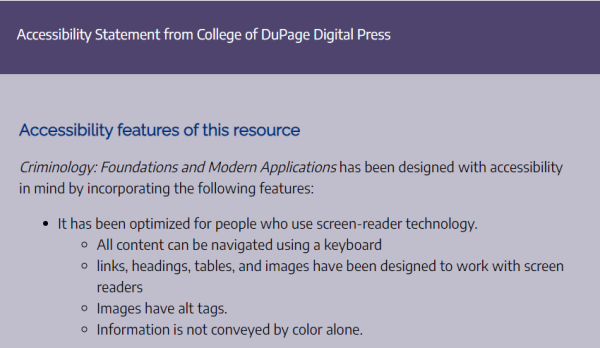
The different virtual modalities, like audio, can possibly make it more accessible to students with physical and learning challenges. On the last day of class, Ramirez-Thompson told us we would have permanent access to the textbook as long as we kept the link and we could email him for help if needed. I know I’ll definitely refer back to the comprehensive material in the textbook as I transfer and continue my criminology major.
This is a valuable example of how great OER textbooks and materials can be, especially authored by our COD professors who are highly knowledgeable in their fields. It really captures the essence of education and scholarship, to share the knowledge and build the expertise of the field, while still rewarding the scholars who contribute so much of their time and research to authoring educational material. When they can author their own textbooks it also gives them a chance to craft chapters closely aligned with their course structure and curriculum.
In contrast, when we get an external textbook for the subject, it often has extra material that isn’t covered in the class. It can feel like you’re paying for something you don’t even use. That was the case in my survey of biology class, with a 198-page printed lab workbook. It was a great class, but it felt unnecessary to purchase the entire workbook to only use about three-fourths of the labs.
However, with this new ZTC option, students will not have to purchase entire lab workbooks or textbooks. The professor can choose what sections are needed. Textbooks can be updated annually, with new information, without having the students buy a whole new textbook for the new edition. For virtual textbooks, they won’t have to print thousands of brand-new copies of a new edition.
I was at the fifth-anniversary celebration this past spring, where the OER steering committee announced the fall ZTC classes and presented the OER funding check. It was great to hear from student liaisons of the committee who were involved with developing the ZTC plan. There were also members of the Student Leadership Council and Phi Theta Kappa. These students had been dedicated to OER through the years and strived to make COD more resource-rich and affordable for their peers.
I encourage other students to take ZCT courses and use Open Education Resources to strengthen their academic journey. Students can help expand OER initiatives by taking the ZTC classes, using the COD Library database, and lending their voice to the OER Steering Committee, as well as student decision groups like SLC.



